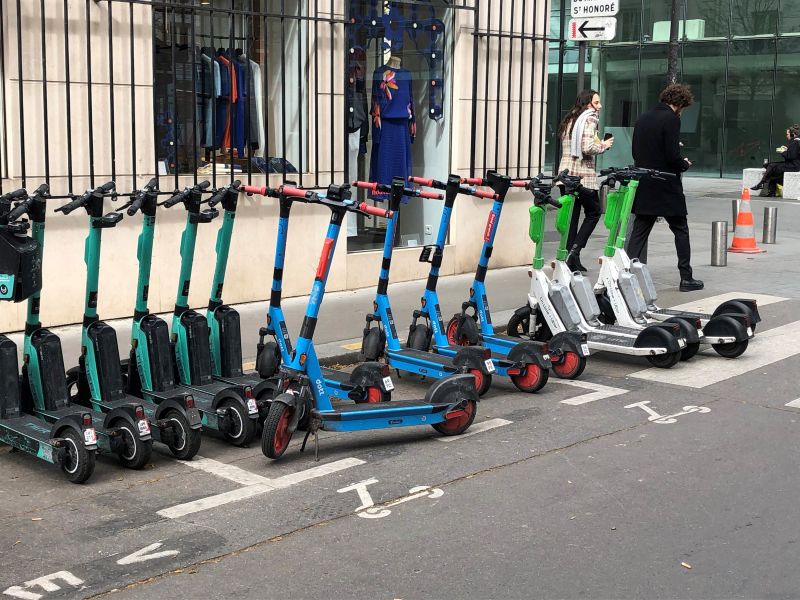Residents of Paris have voted in favor of banning rental electric scooters from the French capital.
Almost 90% of those who turned out on Sunday for a referendum organized by the Paris mayor’s office voted for the ban.
The turnout was very low, however, with only 7.46% of registered voters casting their ballots in one of the 203 polling stations opened for the occasion.
“On September 1, there will be no more rental scooters in Paris. … This is a victory for local democracy,” Paris Mayor Anne Hidalgo said at a press conference over the weekend.
The ban will come into force at the end of August, when the city’s scooter operators’ contracts expire. Private owners of e-scooters won’t be affected.
Operators responded swiftly to the news of the referendum result.
“The real consequence is for our 400,000 monthly users, for the 800 employees of Dott in Paris. Then it’s also for the residents since, mathematically speaking, if we subtract the scooters, it’s more saturation in public transport and more individual vehicles,” Nicolas Gorse, chief business officer of scooter operator Dott, told RMC radio on Monday morning.
In recent years, Paris has introduced a variety of measures aimed at reducing the city’s dependence on private cars and boosting the appeal of other modes of travel. Bike lanes, subsidized e-bike rentals, improved public transportation and e-scooter rentals have all been part of that campaign.
Between mid-2012 and mid-2022, the most recent year for which data is available, there was a 33% drop in traffic on Paris’ roads, according to the city hall.
However, in a report last November, the French academy of medicine described e-scooters as a “true public health problem,” and highlighted that “electric scooter-related accidents are associated with a significant number of serious injuries.”
Paris police do not collect figures for injuries and deaths caused specifically by e-scooters. However, between 2021 and 2022, the number of crashes involving “motorized personal transport devices” – which includes e-scooters, gyropods and motorized skateboards – rose by nearly a third, to 516 accidents, resulting in three deaths, police said.
Paris isn’t the only European city to be grappling with e-scooters. Barcelona was an early champion, but it has partially banned them in historic parts of the city since 2016.
In London, privately owned e-scooters remain illegal for use on public roads, but public trials have been running with three operators since mid-2021.
